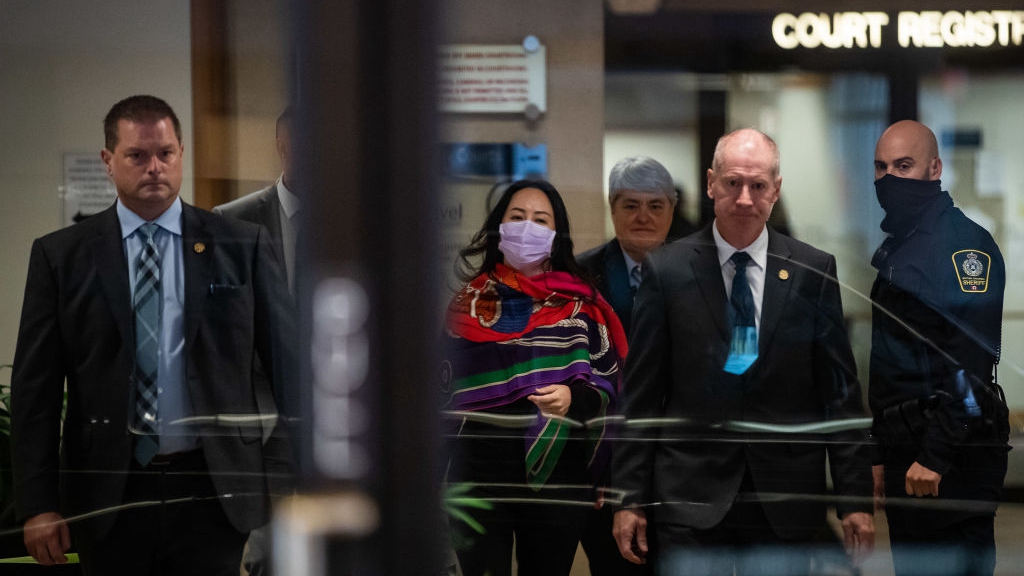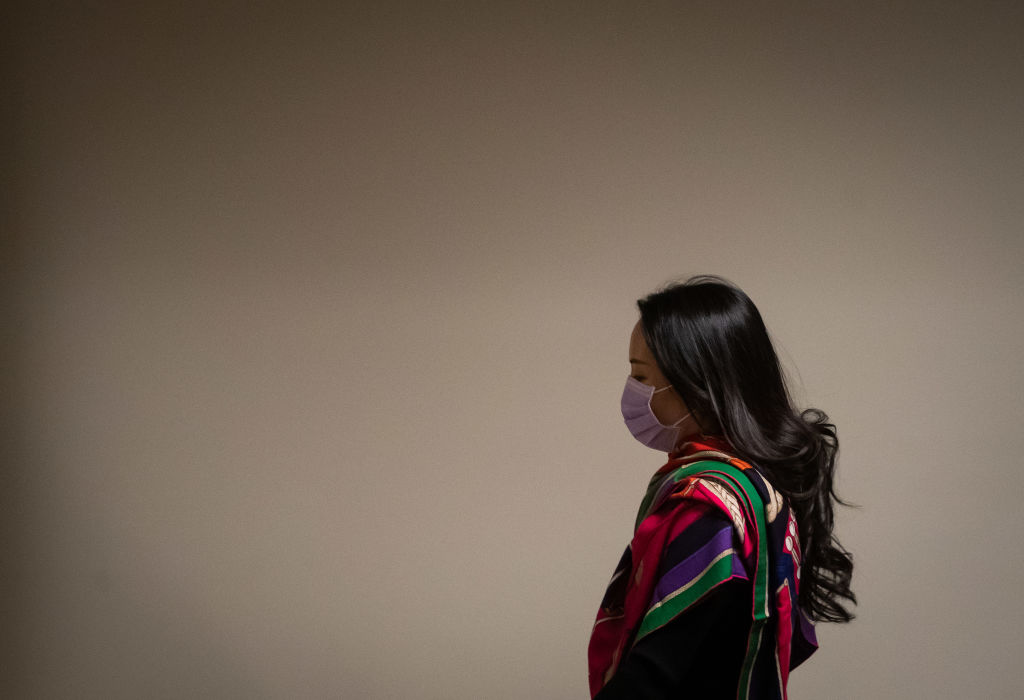
Meng Wanzhou, chief financial officer of Huawei Technologies Co., leaves the Supreme Court during a break from a hearing in Vancouver, British Columbia, Canada, October 29, 2020. /Getty Images
Meng Wanzhou, chief financial officer of Huawei Technologies Co., leaves the Supreme Court during a break from a hearing in Vancouver, British Columbia, Canada, October 29, 2020. /Getty Images
Editor's note: Victor Gao is a current affairs commentator, a former interpreter for Deng Xiaoping and chairman of the China Energy Security Institute. He is also a chair professor at Soochow University and vice president of the Center for China and Globalization. The article reflects the author's opinions, not necessarily the views of CGTN.
The cross-examinations in Huawei CFO Meng Wanzhou's extradition court case underway in the British Columbian Supreme Court in Vancouver, Canada, seem to have been displaced by the final week of the U.S. presidential election and COVID-19 in the news cycle. However, what is happening in the cross-examinations is of vital importance to Canada as a country and to the integrity of the rule of law in Canada.
Ever since Meng's arrest in Vancouver on December 1, 2018, the Canadian government has claimed that, as a country that abides by the rule of law, Canada has to hand Meng over to the U.S. because Washington had issued an arrest warrant for her immediate arrest when she landed in Canada.
But without due process, there is no true rule of law. The cross-examinations in Vancouver have revealed major legal flaws and defects in terms of Meng's arrest, her legal rights and the due process that should have been granted to her.
First, errors in the written declaration Canadian federal police officer Winston Yep submitted to the judge for Meng's arrest warrant falsely declares that the CFO had no connection with Canada. But, in fact, Meng had made more than 50 trips to Canada over the past decade, holds a Canadian permanent residence card and owns two properties in Vancouver.

Meng Wanzhou, chief financial officer of Huawei Technologies Co., arrives at the Supreme Court for a hearing in Vancouver, British Columbia, Canada, October 29, 2020. /Getty Images
Meng Wanzhou, chief financial officer of Huawei Technologies Co., arrives at the Supreme Court for a hearing in Vancouver, British Columbia, Canada, October 29, 2020. /Getty Images
Additional procedural flaws and errors occurred in the Canadian government's handling of Meng's arrest, detention and interrogation at the Vancouver International Airport. The search of her belongings, confiscation of her electronic devices, and the Canada Border Services Agency (CSBA) agent's unauthorized sharing of the passwords for her electronic devices with the Canadian federal police also fall into this bracket.
Such actions violate the due process to which Meng was entitled as an international passenger transiting through the Vancouver International Airport en route to Mexico.
What's also significant is that on December 1, 2018, the Canadian federal police officer tasked with immediately arresting Meng did not execute his instruction in a timely manner but asked the CBSA at the airport to hold Meng and interrogate her for up to three hours. It created the impression that it was a routine immigration and customs interview rather than the execution of Meng's arrest warrant.
Further, the Canadian federal police officer did not even carry the arrest warrant with him to the airport; due process would have required that. When Meng was arrested at the Vancouver International Airport, the Canadian federal police should have shown Meng the arrest warrant and read her rights to her, including the right to an attorney, before she answered any questions asked by the police.
Depriving Meng of her rights seriously undermined the due process enshrined in the rule of law in Canada. Meng's lawyers have argued that what happened to the CFO was a "covert criminal investigation" that should not be part of the rule of law in Canada.
Parallel to the violation of due process in the case against Meng is the truth that the U.S. extradition of Meng is political persecution. Canada should live up to the expectation of the rule of law and due process, rather than become an accomplice in the U.S. government's persecution of Meng Wanzhou and Huawei.
(If you want to contribute and have specific expertise, please contact us at opinions@cgtn.com.)